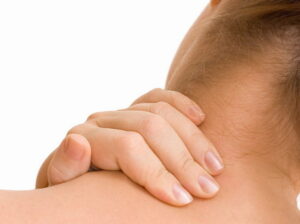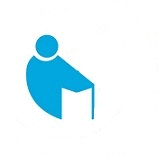Spasmodic Torticollis
 Cervical dystonia, also called spasmodic torticollis, is a painful condition in which your neck muscles contract involuntarily, causing your head to twist or turn to one side. Cervical dystonia can also cause your head to uncontrollably tilt forward or backward.
Cervical dystonia, also called spasmodic torticollis, is a painful condition in which your neck muscles contract involuntarily, causing your head to twist or turn to one side. Cervical dystonia can also cause your head to uncontrollably tilt forward or backward.
A rare disorder that can occur at any age, cervical dystonia most often occurs in middle-aged people, women more than men. Symptoms generally begin gradually and then reach a point where they don’t get substantially worse.
There is no cure for cervical dystonia. The disorder sometimes resolves without treatment, but sustained remissions are uncommon. Injecting botulinum toxin into the affected muscles often reduces the signs and symptoms of cervical dystonia. Surgery may be appropriate in a few cases.
Symptoms
The muscle contractions involved in cervical dystonia can cause your head to twist in a variety of directions, including:
- Chin toward shoulder
- Ear toward shoulder
- Chin straight up
- Chin straight down
The most common type of twisting associated with cervical dystonia is when your chin is pulled toward your shoulder. Some people experience a combination of abnormal head postures. A jerking motion of the head also may occur.
Many people who have cervical dystonia also experience neck pain that can radiate into the shoulders. The disorder can also cause headaches. In some people, the pain from cervical dystonia can be exhausting and disabling.
Causes
In most people with cervical dystonia, the cause is unknown. Some people who have cervical dystonia have a family history of the disorder. Researchers have found gene mutations associated with cervical dystonia. Cervical dystonia is also sometimes linked to head, neck or shoulder injuries.
Treatment
There is no cure for cervical dystonia. In some people, signs and symptoms may disappear without treatment, but recurrence is common. Treatment focuses on relieving the signs and symptoms. we may recommend at Alimran Medical Center, any of the following treatments
Regenerative medicine treatment (Prolotherapy)
Neurons stimulation
Repetitive Transcranial Magnetic Stimulation, rTMS
Transcranial direct current stimulation (tDCS)
Steroid injection
- Trigger point injections
- Epidural steroid injections
- Electrical stimulation
- Short and long wave
- Laser therapy
- Ultrasonic therapy
- Magnatic therapy
- Exercises
Chiropractic
